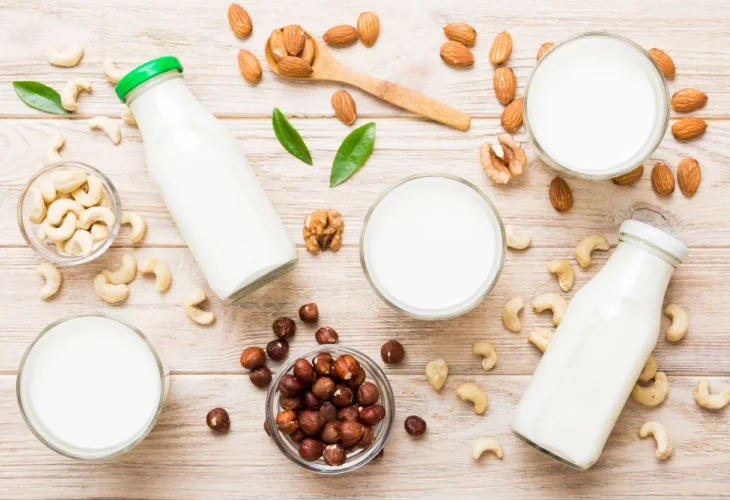Health and Nutrition
Animal vs. Plant Protein: Which Is Healthier and More Sustainable?
The key differences between animal and plant-based protein sources, their health benefits, environmental impact, and how to choose the best protein for your lifestyle

Protein has become one of the most talked-about topics in modern nutrition, especially as more people adopt a health-conscious lifestyle. While it’s well-known that protein is essential for building muscle, supporting vital body systems, and maintaining energy levels, many still wonder if animal protein is better than plant protein. If you're vegetarian or vegan, are you getting enough protein?
What Is Protein, Really?
Before we explore the differences between animal and plant-based protein, it’s helpful to understand what protein actually is. Proteins are made up of amino acids — 20 different types, to be exact. Of these, 9 are considered "essential," meaning that our bodies can’t produce them on their own and we must get them from our diet. Protein is vital for nearly every system in the body, including muscles, skin, bones, hair, nails, and even the digestive system.
Animal-Based Protein: Is It Good or Bad?
Animal sources such as meat, fish, eggs, and dairy products are considered complete proteins — they contain all 9 essential amino acids in optimal ratios. Additionally, animal protein tends to be more easily absorbed by the body due to its similarity to human tissue.
Benefits of Animal Protein
Complete amino acid profile – All essential amino acids in one serving make it easier to meet nutritional needs.
High bioavailability – Animal proteins are efficiently absorbed, helping with muscle growth and recovery.
High protein density – You get more protein per serving, which makes it easier to hit daily goals.
Downsides of Animal Protein
Potential health risks – Excessive consumption of red meat or full-fat dairy may raise LDL cholesterol and increase the risk of heart disease.
Environmental impact – The livestock industry contributes significantly to greenhouse gas emissions, water waste, and land use.
Cancer risk – Studies have linked high intake of processed red meat to conditions such as colorectal cancer.
Sources of Complete Animal Protein
Beef
Chicken
Fish (salmon, tuna, cod, etc.)
Eggs
Dairy (cheese, yogurt, milk)
Lamb
Turkey
Plant-Based Protein: Is It Enough?
Plant-based protein comes from foods like legumes (lentils, chickpeas, beans), whole grains, nuts, and seeds. Most of these are incomplete proteins, meaning they don’t contain all essential amino acids in sufficient amounts. However, by combining various plant foods, you can create a complete protein profile.
Benefits of Plant Protein
Rich in fiber – Legumes and whole grains help reduce cholesterol and support gut health.
Nutrient-dense – Plant-based proteins often contain beneficial vitamins and minerals like magnesium, iron, and vitamin C, along with antioxidants and fiber.
Eco-friendly – Plant agriculture typically uses fewer natural resources and emits significantly less CO₂.
Downsides of Plant Protein
Incomplete amino acid profile – Most plant foods lack one or more essential amino acids, requiring careful food pairing.
Larger volume required – You may need to eat more plant-based foods to match the protein content of animal products.
Lower absorption of nutrients – Certain minerals like iron are less bioavailable in plant sources compared to animal ones.
How to Get Complete Protein on a Plant-Based Diet
To make plant proteins "complete," simply combine complementary foods. Here are some powerful pairings:
Legume + Grain Combos:
Rice + lentils
Chickpeas + whole wheat pita
Black beans + corn
Beans + brown rice
Grain + Nut/Seed Combos:
Oatmeal with chia or flax seeds
Quinoa with almonds or sunflower seeds
Legume + Seed Combos:
Chickpeas + tahini (hummus)
Beans + pumpkin seeds
Grain + Vegetable Combos:
Quinoa with spinach or broccoli
Smart Protein Tips
If you eat animal products, choose lean sources such as poultry, fish, and eggs. Minimize intake of red and processed meats.
If you're plant-based, diversify your meals with legumes, whole grains, and nuts. Combine foods to ensure a full amino acid profile.
If you're eco-conscious, plant protein may be the healthier choice for both you and the planet.
Which Protein Is Better?
There’s no one-size-fits-all answer. The best source of protein depends on your personal health goals, lifestyle, and values. Both animal and plant-based proteins have pros and cons. The key is to make intentional, informed choices. For many people, a combination of both may be ideal.
Disclaimer: The information in this article is for educational purposes only and should not be considered medical advice. Always consult a qualified healthcare professional before making significant dietary changes.

